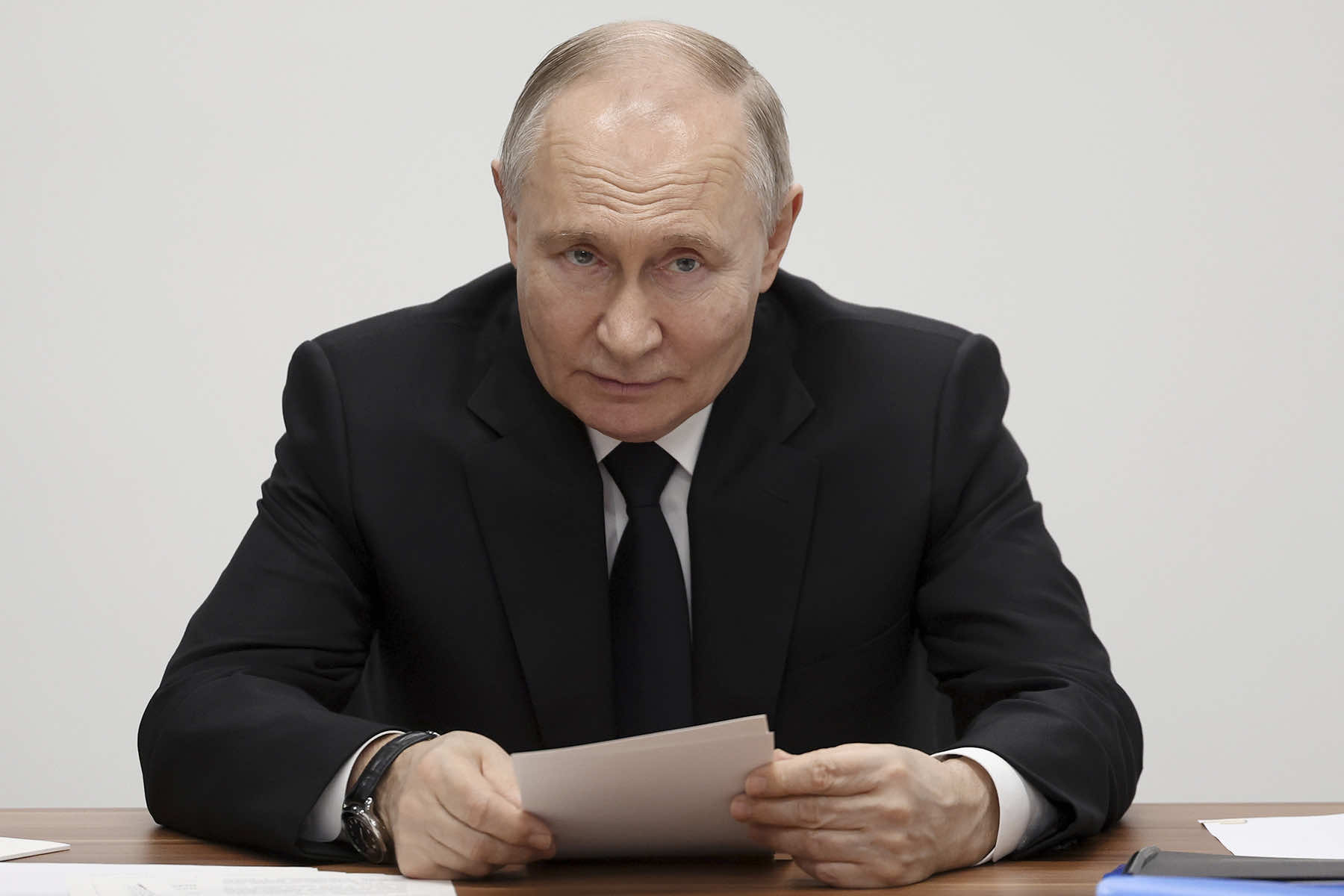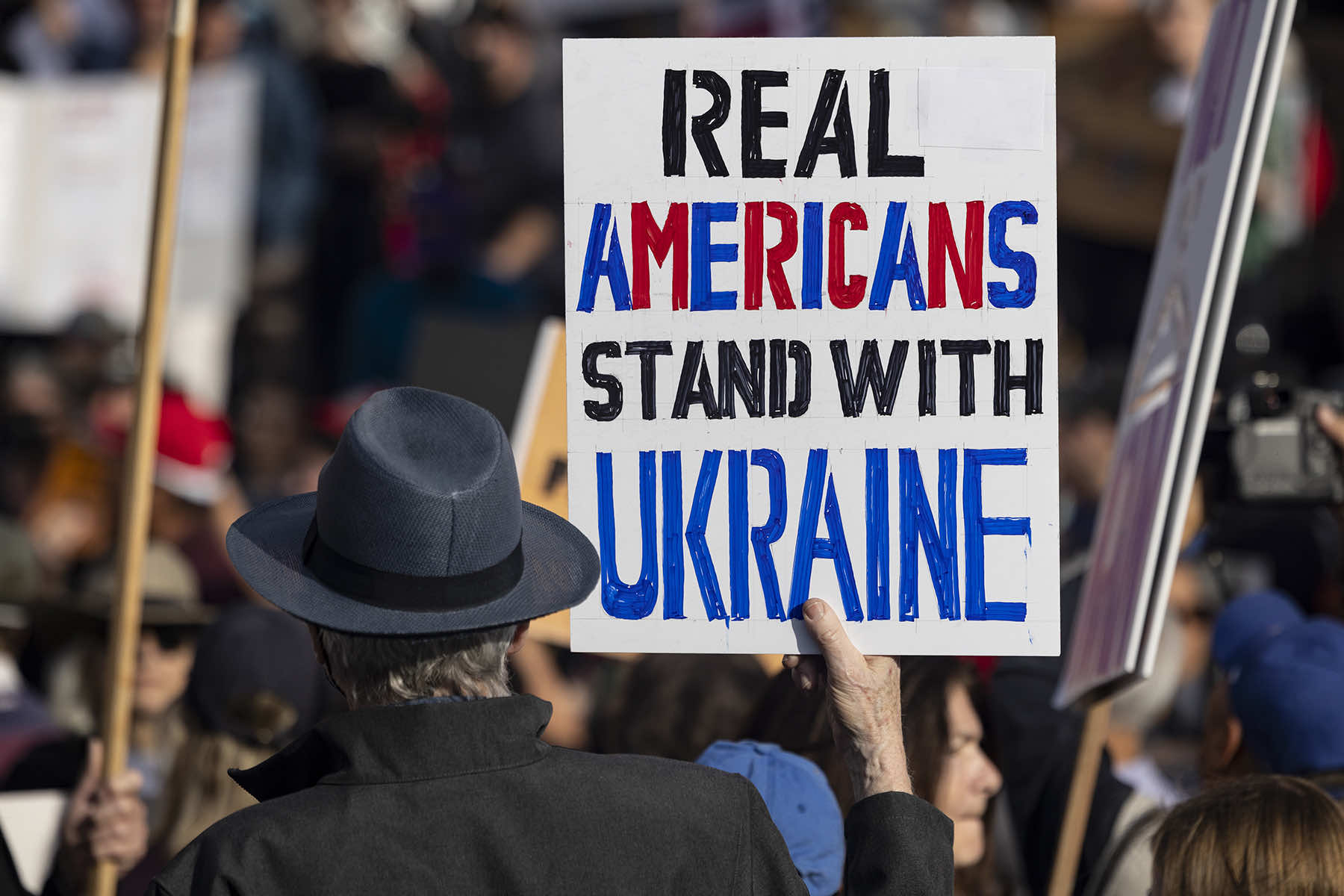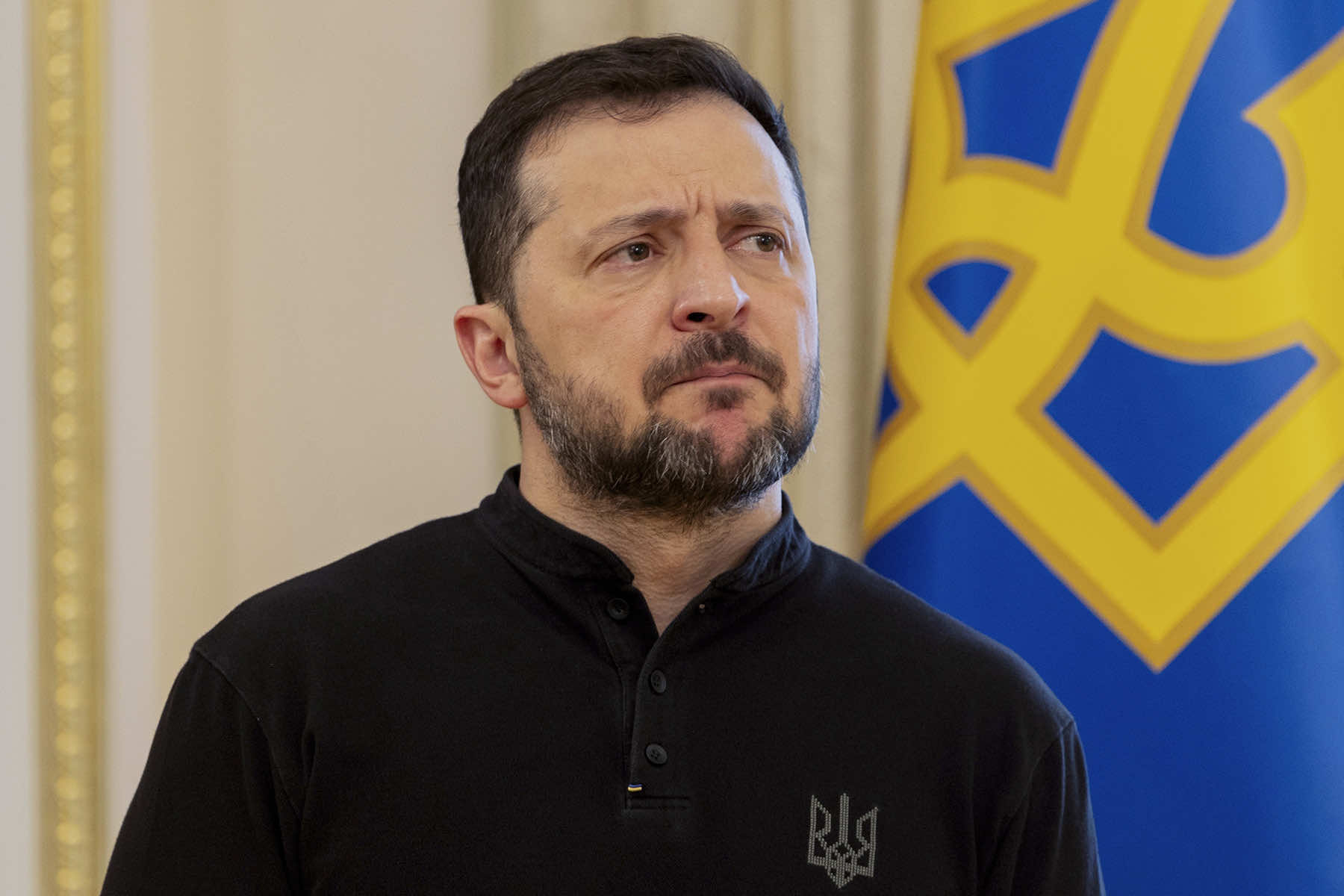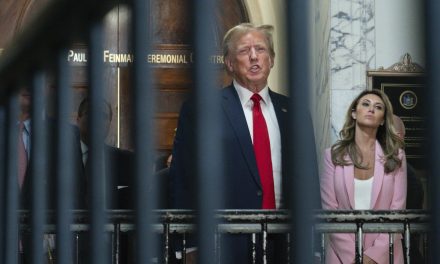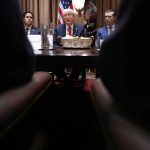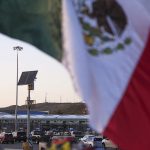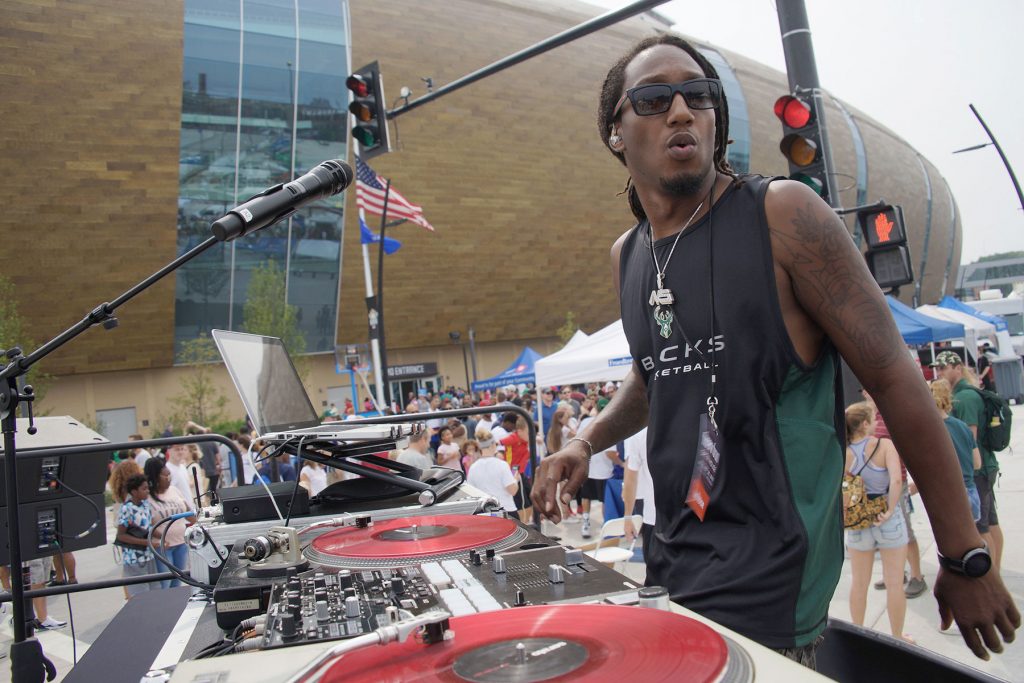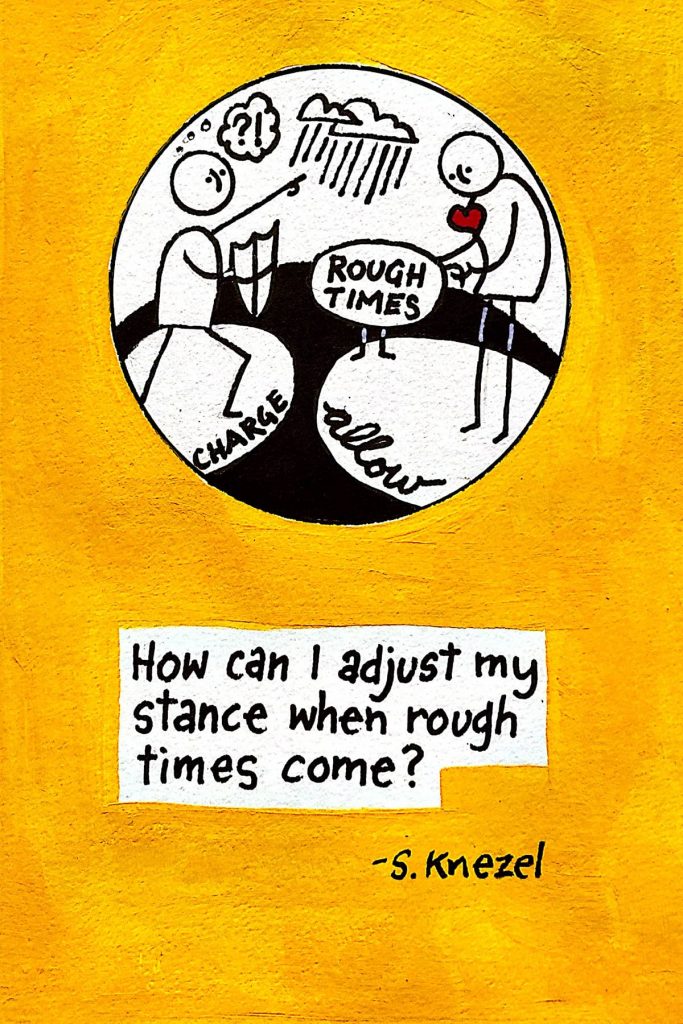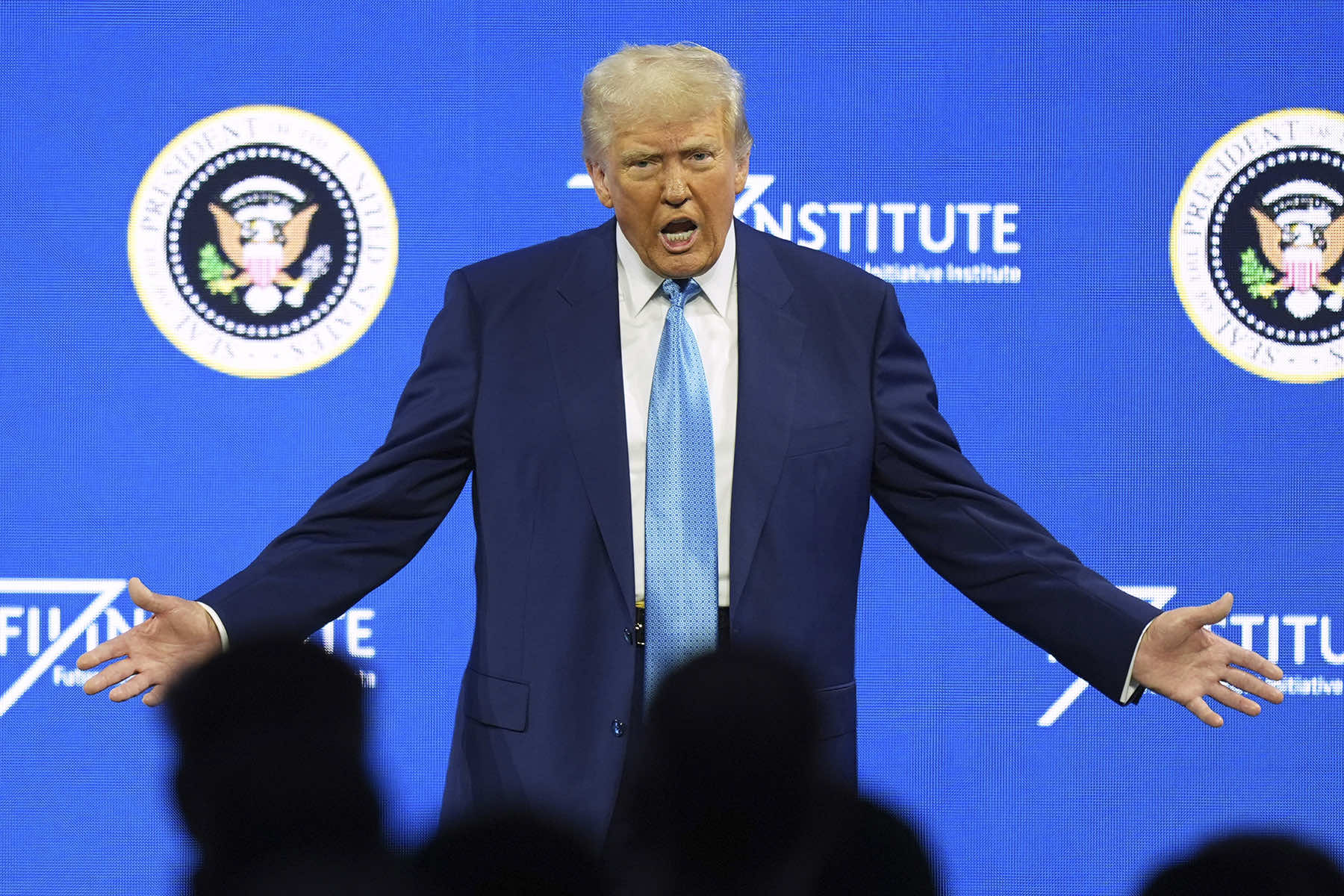
Days before the third anniversary of Russia’s brutal full-scale invasion, Ukrainians were as somber and tense as they were right before Moscow launched the unprovoked war. Only now, they are not just worried about their longtime enemy.
Ukraine’s stunning new threat comes from its once staunchest ally, the United States, whose support appears to be fading as the convicted felon and president – Donald Trump – has echoed the narrative of Russian dictator Vladimir Putin.
“Think of it, a modestly successful comedian, Volodymyr Zelenskyy, talked the United States of America into spending $350 Billion Dollars, to go into a War that couldn’t be won, that never had to start, but a War that he, without the U.S. and “TRUMP,” will never be able to settle,” Trump said of Ukrainian President Volodymyr Zelenskyy, who was a popular television star in Ukraine before running for office.
Trump warned President Zelenskyy that he “better move fast” to negotiate an end to Russia’s invasion of Ukraine or risk not having a nation to lead.
At his news conference on February 19, President Zelenskyy said, “We have seen this disinformation. We understand that it is coming from Russia.”
He said that Trump “lives in this disinformation space” and would like his team “to be more truthful,” after refuting lies Trump made falsely suggesting that Kyiv was to blame for the war.
President Zelenskyy also referred to “the story” that 90% of all aid received by Ukraine came from the United States. He noted that, for instance, about 34% of all weapons in Ukraine were domestically produced, and over 30% of support came from Europe.
Russia’s army crossed the border into Ukraine on February 24, 2022, in an all-out invasion that Putin sought to justify by falsely asserting it was needed to protect civilians in eastern Ukraine. He also accused the U.S. and its allies of ignoring Russia’s demand to prevent Ukraine from joining NATO, and to offer Moscow security guarantees.
Ukraine and its allies denounced the assault as an unprovoked act of aggression.
After their initial shock at Trump’s false claims that Ukraine was led by a “dictator” who started the war with Russia, the Ukrainian people have been rallying around a defiant President Zelenskyy, who publicly criticized Trump for promoting Russian “disinformation.”
“Yes, he’s not a perfect president, but he’s not a dictator,” said Kateryna Karaush, a 25-year-old tech worker from Kyiv who like many Ukrainians — and even some Republicans in Congress — is struggling to wrap her head around Trump’s embrace of Russia, which represents a major about-face in U.S. foreign policy.
“It feels like the whole world is against us,” Karaush said.
Against long odds, Ukrainians have prevented Russia from overtaking their country, even if roughly one-fifth of it is now under oppressive Russian occupation.
“It’s disgusting to see how they are getting ready to carve up Ukraine the way Stalin and Hitler carved up Poland in 1939,” said a Ukrainian soldier recovering from a wounded leg, referring to the Molotov-Ribbentrop Pact, a nonaggression treaty signed by Russia and Germany that divided Poland between the two nations.
He said that the new stream of rhetoric from the White House, mirroring flow of lies from the Kremlin, reminded him of that dark period in Europe’s history.
But after three years of war, both civilians and soldiers are exhausted. Hundreds of thousands have been killed or wounded, tens of thousands are missing, and millions have fled the country.
The mood only became gloomier after Trump signaled his desire to rapidly bring the fighting to a close on terms that Zelenskyy and many in the West say are too favorable to Trump’s benefactor in Russia.
The U.S. has obligated about $183 billion since Russia invaded Ukraine in February 2022, according to the U.S. special inspector general, conducting oversight of American assistance to Ukraine. Other than humanitarian aid, the majority of those funds come in two forms. Part is from the value of munitions sent to Ukraine from aging U.S. stockpiles that would have to be destroyed, and the other part is the money that goes to Ukraine to buy new munitions. Essentially, the majority of U.S. aid to Ukraine goes directly into the pockets of U.S. defense contractors.
Trump has a long history of misdirection by accusing those who oppose him of the very crimes he is committing. During the 2024 election campaign, he declared that if elected, he would be a dictator on day 1.
So it was not surprising that he denigrated President Zelenskyy by calling him a “dictator” for legally postponing the April 2024 election during wartime conditions as permitted by the Ukrainian constitution.
After his remark, and as reports emerged of U.S. and Russian officials meeting in Saudi Arabia to discuss a possible ceasefire without input or involvement from Ukraine, even some of Zelenskyy’s harshest domestic critics have begun defending him.
“We may have different opinions about Zelenskyy, but only Ukrainian citizens have the right to judge his support,” said Yaroslav Zhelezniak, a lawmaker from the opposition party Holos. “And to publicly criticize him too, because, in the end, he is our elected leader.”
Trump’s harsh words for Zelenskyy have drawn criticism from Democrats and even some Republicans in the U.S. Congress, where defending Ukraine from Russia — with tens of billions of dollars in military aid — has had bipartisan support.
But Vice President JD Vance admonished Zelenskyy for publicly warning Trump about falling for Russian disinformation.
The deepening tensions over Trump’s bruised ego also led to the cancelation of a news conference that had been planned to follow talks between Zelenskyy and the U.S. envoy over how to end the war.
Senate Democratic leader Chuck Schumer of New York was appalled that Trump was blaming Ukraine for Putin’s invasion.
“It’s disgusting to see an American president turn against one of our friends and openly side with a thug like Vladimir Putin,” Schumer said.
Senator John Kennedy, R-LA, said he disagreed with Trump’s suggestion that Ukraine was responsible.
“I think Vladimir Putin started the war,” Kennedy said. “I also believe, from bitter experience, that Vladimir Putin is a gangster. He’s a gangster with a black heart” who has Soviet dictator Josef Stalin’s taste for blood.'”
Senator Dick Durbin, D-IL, said Trump’s words were insulting to the thousands of Ukrainians who have died in the war and he accused the president of parroting Putin. “I would call on President Trump to apologize to the people of Ukraine, but it would be a waste of breath,” Durbin said. “Donald Trump is a pushover for Putin.”
A poll released on February 19 by the Kyiv International Institute of Sociology put public trust in Zelenskyy at 57%. The survey was conducted from February 4 to February 9 among 1,000 people living across Ukraine in regions and territories controlled by the Ukrainian government.
“We have a president whom we support. During war, we are united,” said Larysa, a 52-year-old resident from the northeastern city of Kharkiv, who refused to give her last name due to security concerns.
The political rift with the U.S. comes as Ukrainian forces, outnumbered and outgunned, increasingly struggle to hold back Russia’s slow but steady advances.
Speaking from the front lines, some Ukrainian soldiers said they were not panicking yet, and not ready to give up the fight.
“Even if we don’t get enough weapons or if funding is cut, that doesn’t change our duty to (fight),” said a Ukrainian officer who spoke on condition of anonymity in line with military rules. “No shells? We’ll take up rifles. No rifles? We’ll grab shovels.”
On February 19, Trump echoed one of Putin’s frequent talking points, claiming Zelenskyy, whose term expired last year, must hold elections. But the idea has little traction within Ukraine — even among opposition politicians, who recognize Zelenskyy’s right to postpone elections during wartime.
“Elections are not needed right now because they should only take place when we understand the framework of (a peace) agreement with Russia,” said Volodymyr Ariev, a lawmaker from the opposition European Solidarity party. “Holding elections now would only benefit the Kremlin, further dividing Ukrainians and installing a new president who could sign a deal favorable to Moscow.”
An adviser to Zelenskyy, Mykhailo Podolyak, gave an additional reason for holding off any election until there is peace: Russia might seek to interfere in an electoral process that would already face significant challenges.
Millions of displaced Ukrainians living abroad would struggle to participate, not to mention the hundreds of thousands Ukrainians living in Russian-occupied territories, whose ability to vote would be virtually impossible.
Around 800,000 Ukrainians are currently serving in the armed forces, making it difficult for them to cast ballots without weakening the military. And those fighting would be unable to run for office — a right guaranteed under Ukrainian law. Additionally, elections would mean mass public gatherings at identifiable polling centers, which would be easy targets for ballistic missile strikes from Russia.
“Holding elections before a peace agreement with security guarantees is signed would be devastating for Ukraine,” said Valerii Pekar, a professor at Kyiv-Mohyla Business School. “The U.S. and Russia are now united in promoting the idea of ‘elections first, then peace’ — which is the quickest and cheapest way to bring Ukraine down.”
On February 23, President Zelenskyy said he would be ready to give up the presidency if it brought peace and NATO membership. His comment appeared to be aimed at Trump and Putin.
Speaking at a forum of government officials in Kyiv marking the three-year anniversary of Russia’s full-scale invasion of Ukraine, President Zelenskyy said he would step down if doing so would achieve a lasting peace for his country under the security umbrella of the NATO military alliance.
“If to achieve peace, you really need me to give up my post, I’m ready,” President Zelenskyy said in response to a journalist’s question on whether he would trade his office for peace. “I can trade it for NATO.”

